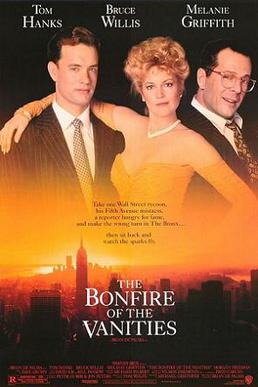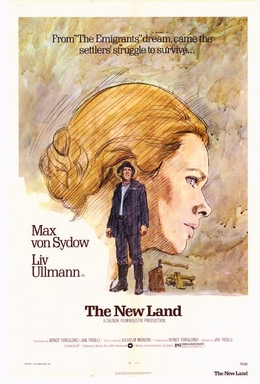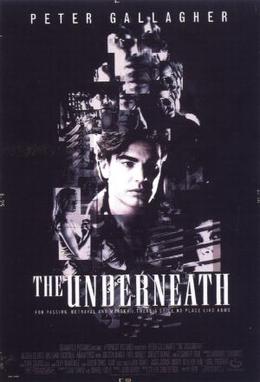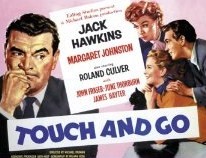
Steven Andrew Soderbergh is an American film director, producer, screenwriter, cinematographer and editor. A pioneer of modern independent cinema, Soderbergh is an acclaimed and prolific filmmaker.

Traffic is a 2000 American crime drama film directed by Steven Soderbergh and written by Stephen Gaghan. It explores the illegal drug trade from several perspectives: users, enforcers, politicians, and traffickers. Their stories are edited together throughout the film, although some characters do not meet each other. The film is an adaptation of the 1989 British Channel 4 television series Traffik. The film stars an international ensemble cast, including Don Cheadle, Benicio del Toro, Michael Douglas, Erika Christensen, Luis Guzmán, Dennis Quaid, Catherine Zeta-Jones, Jacob Vargas, Tomas Milian, Topher Grace, James Brolin, Steven Bauer, and Benjamin Bratt. It features both English and Spanish-language dialogue.

Panic is a 2000 American crime drama film written and directed by Henry Bromell and starring William H. Macy in the lead role, alongside Neve Campbell, Tracey Ullman, John Ritter, Miguel Sandoval, and Donald Sutherland. The film centers on Alex (Macy), a hitman who suffers a midlife crisis amidst the number of struggles he and his family face. Determined to quit contract killing, he seeks treatment from therapist Dr. John Parks (Ritter) and enters an affair with a younger woman, Sarah Cassidy (Campbell).

Out of Sight is a 1998 American crime comedy film directed by Steven Soderbergh and written by Scott Frank, adapted from Elmore Leonard's 1996 novel of the same name. The first of several collaborations between Soderbergh and actor George Clooney, it was released on June 26, 1998.

Fear is a 1996 American psychological thriller film directed by James Foley and written by Christopher Crowe. It stars Mark Wahlberg, Reese Witherspoon, William Petersen, Alyssa Milano and Amy Brenneman. It revolves around a wealthy family whose seemingly perfect life is threatened when their teenage daughter begins dating an attractive and mysterious young man.

Mishima: A Life in Four Chapters is a 1985 biographical drama film based on the life and work of Japanese writer Yukio Mishima, directed by Paul Schrader from a screenplay co-written with his brother Leonard and Leonard's wife Chieko Schrader. The film interweaves episodes from Mishima's life with dramatizations of segments from his books The Temple of the Golden Pavilion, Kyoko's House, and Runaway Horses. Francis Ford Coppola and George Lucas were executive producers of the film, which has a musical score composed by Philip Glass and production design by Eiko Ishioka.

Point Blank is a 1967 American crime film directed by John Boorman, starring Lee Marvin, co-starring Angie Dickinson, Keenan Wynn and Carroll O'Connor, and adapted from the 1963 crime noir pulp novel The Hunter by Donald E. Westlake, writing as Richard Stark. Boorman directed the film at Marvin's request and Marvin played a central role in the film's development. The film grossed over $9 million at the box-office in 1967, and has since gone on to become a cult classic, eliciting praise from such critics as film historian David Thomson.
Une Femme ou Deux is a French screwball comedy romance film released in 1985. It was directed by Daniel Vigne, who was also the screenwriter along with Élisabeth Rappeneau. It stars Gérard Depardieu, Sigourney Weaver, and Dr. Ruth Westheimer.

Psycho is a 1998 American psychological horror film produced and directed by Gus Van Sant, and starring Vince Vaughn, Julianne Moore, Viggo Mortensen, William H. Macy, and Anne Heche. It is a modern remake of Alfred Hitchcock's 1960 film of the same name, in which an embezzler arrives at an old motel run by a mysterious man named Norman Bates; both films are adapted from Robert Bloch's 1959 novel.

The Bonfire of the Vanities is a 1990 American satirical black comedy film directed and produced by Brian De Palma and starring Tom Hanks, Bruce Willis, Melanie Griffith, Kim Cattrall, and Morgan Freeman. The screenplay, written by Michael Cristofer, was adapted from the bestselling 1987 novel of the same name by Tom Wolfe.

The New Land is a 1972 Swedish film directed and co-written by Jan Troell and starring Max von Sydow, Liv Ullmann, Eddie Axberg, Allan Edwall, Monica Zetterlund, and Pierre Lindstedt. It and its 1971 predecessor, The Emigrants (Utvandrarna), which were produced concurrently, are based on Vilhelm Moberg's The Emigrants, a series of novels about poor Swedes who emigrate from Småland, Sweden, in the mid-19th century and make their home in Minnesota. This film adapts the latter half of the four novels, which depict the struggles of the immigrants to establish a settlement in the wilderness and adjust to life in America.

Loving is a 1970 American comedy-drama film released by Columbia Pictures and directed by Irvin Kershner. It is based on the novel Brooks Wilson Ltd. written by pulp magazine illustrator John McDermott under his pen name J.M. Ryan. The movie starred George Segal in the lead role of a philandering illustrator and Eva Marie Saint as his wife. The cast included Sterling Hayden, David Doyle, Keenan Wynn, Roy Scheider, and Sherry Lansing. Broadway actress Betsy von Furstenberg has a small uncredited role, only one of two motion pictures she ever appeared in.

Class of 1984 is a 1982 drama thriller film directed by Mark Lester and co-written by Tom Holland and John Saxton, based on a story by Holland. The film stars Perry King, Merrie Lynn Ross, Timothy Van Patten, Lisa Langlois, Stefan Arngrim, Michael J. Fox, and Roddy McDowall.

Petulia is a 1968 drama film directed by Richard Lester and starring Julie Christie, George C. Scott and Richard Chamberlain. The film has a screenplay by Lawrence B. Marcus from a story by Barbara Turner and is based on the 1966 novel Me and the Arch Kook Petulia by John Haase. It was scored by John Barry.

The World According to Garp is a 1982 American comedy-drama film produced and directed by George Roy Hill and starring Robin Williams in the title role. Written by Steve Tesich, it is based on the 1978 novel The World According to Garp by John Irving. For their roles, John Lithgow and Glenn Close were respectively nominated for Best Actor in a Supporting Role and Best Actress in a Supporting Role at the 55th Academy Awards.

The Fire Within is a 1963 drama film written and directed by Louis Malle. It is based on the 1931 novel Will O' the Wisp by Pierre Drieu La Rochelle, which was inspired by the life of poet Jacques Rigaut. The film stars Maurice Ronet and features Léna Skerla, Jean-Paul Moulinot, Bernard Tiphaine, Bernard Noël, Jeanne Moreau, Jacques Sereys, and Alexandra Stewart in supporting roles. The score consists of music composed by Erik Satie and performed by pianist Claude Helffer.

The Underneath is a 1995 American crime film directed by Steven Soderbergh and starring Peter Gallagher and Alison Elliott. The film is based on the novel Criss Cross by Don Tracy, and is a remake of the original 1949 film adaptation. The plot revolves around many themes common to film noir, including romantic intrigue, a botched robbery, and a surprise ending.

Tail Spin is a 1939 aviation film. The screenplay was written by Frank Wead and directed by Roy Del Ruth. It was based on the book, "Women with Wings: A novel of the modern day aviatrix", authored by Genevieve Haugen, who was also an advisor and stunt pilot in the film. Tail Spin starred Alice Faye, Constance Bennett, Nancy Kelly, Joan Davis, Charles Farrell and Jane Wyman.

The Boost is a 1988 American drama film directed by Harold Becker and based on the book Ludes: A Ballad of the Drug and the Dream by Ben Stein. It stars James Woods, Sean Young, John Kapelos, Steven Hill, June Chandler and Amanda Blake.

Touch and Go is a 1955 British comedy film directed by Michael Truman, and starring Jack Hawkins, Margaret Johnston, and June Thorburn. The film was made by Ealing Studios. The film was indifferently received on release, and is not generally included in the canon of classic Ealing Comedies. It did, however, pick up two nominations at the 1956 British Academy Film Awards: Margaret Johnston for "Best British Actress", and William Rose for "Best British Screenplay" – Rose did win that year's screenplay award, but for another Ealing film, The Ladykillers.



















